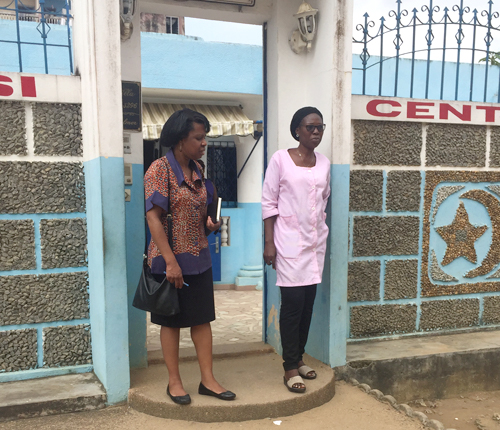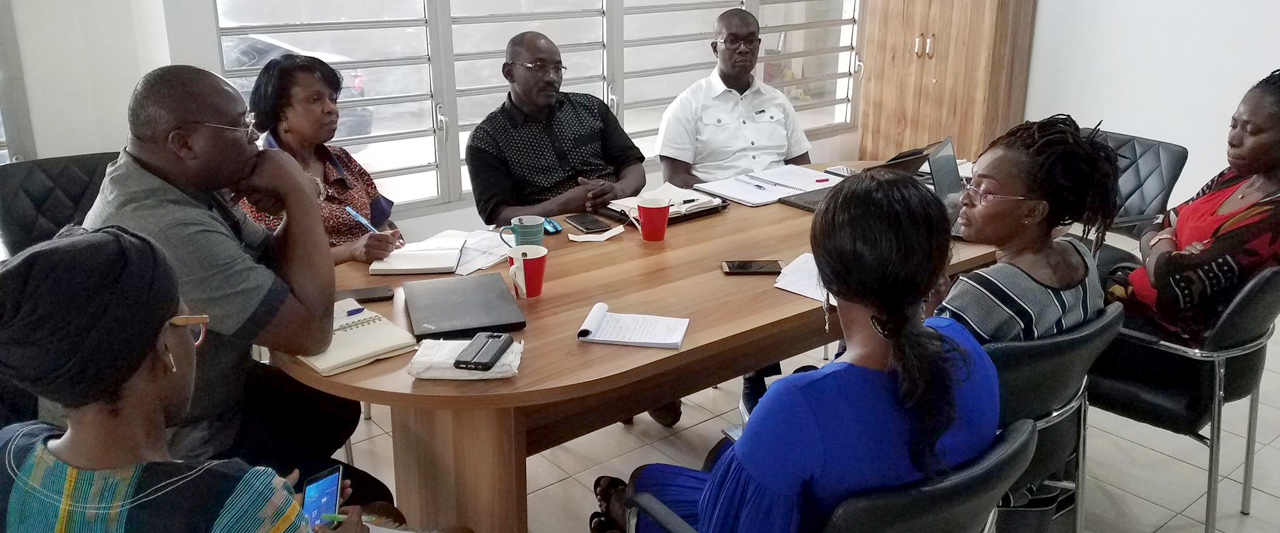By Muadi Mukenge, Ipas Chief of Development and External Relations
 When I arrived at the Gbagba Community Health Center in a dense Abidjan neighborhood in July, over a dozen women, some with children, were patiently waiting in the open-air hospital reception area. This is normal for the model health center, which sees about 400 women a month for family planning services alone. Of note, Gbagba, whose maternity ward holds three beds, has not had a maternal death in the past six years and has won distinction as a Center of Excellence by the Cote d’Ivoire Ministry of Health.
When I arrived at the Gbagba Community Health Center in a dense Abidjan neighborhood in July, over a dozen women, some with children, were patiently waiting in the open-air hospital reception area. This is normal for the model health center, which sees about 400 women a month for family planning services alone. Of note, Gbagba, whose maternity ward holds three beds, has not had a maternal death in the past six years and has won distinction as a Center of Excellence by the Cote d’Ivoire Ministry of Health.
This hospital is one of 20 health centers Ipas Cote d’Ivoire will support for family planning and safe abortion services, as part of a three-year strategy to reduce deaths due to unsafe abortion. Cote d’Ivoire has the highest rate of maternal mortality in West Africa, at 640 deaths per 100,000 births. Ipas opened an office here in 2018 and began activities in February 2019 to improve reproductive health services through Ministry of Health facilities.
So far, Ipas has trained 52 health providers on comprehensive abortion and postabortion care, including contraception. This work is important in a country where women so often resort to underground providers who use unsafe tools. The program is meeting regularly with ministries of health, youth and education, to build political will for the work. It is also collaborating with community organizations that have a deep reach into communities and play a key role in conducting health education.

Ipas’s Chief of Development and External Relations, Muadi Mukenge, with a midwife who received Ipas training in comprehensive abortion care (CAC) and family planning (FP), outside a private clinic.
The health system work is in concert with broad efforts to take advantage of a regional treaty that promises important gains for women and girls. The Maputo Protocol, as it is known, was passed by the African Union in 2003, and ratified in Cote d’Ivoire in 2011. The document calls for the provision of safe abortion services in instances of rape, incest and in cases where the pregnancy poses a danger to the mother. Unfortunately, the country has never been able to realize the promise of the Protocol, nor has the government put in place the mechanisms for the health reforms to occur. I hope the success in 2018 in the Democratic Republic of Congo can serve as a roadmap for work in Cote d’Ivoire and the region. More work needs to be done to ensure that the wider public is aware of the Maputo Protocol. Ipas and other national and international organizations are partnering to make this possible.
There is a real and present need to expand family planning in Francophone West Africa. For many years, the contraceptive prevalence rate has lagged behind that of eastern and southern Africa. Under an initiative called the Ouagadougou Partnership, a collective of donors, governments and national organizations have developed a strategy that will significantly extend services to women, with the goal of seeing maternal death rates fall. And it will mean new possibilities for women in West Africa—to achieve their potential, plan the family size they want, and benefit from the global momentum toward greater women’s rights.
I was inspired by the people I met—Ipas staff, health center staff and community members—particularly by their deep commitment to improve the quality of life of women and girls.
For more information, contact [email protected].


